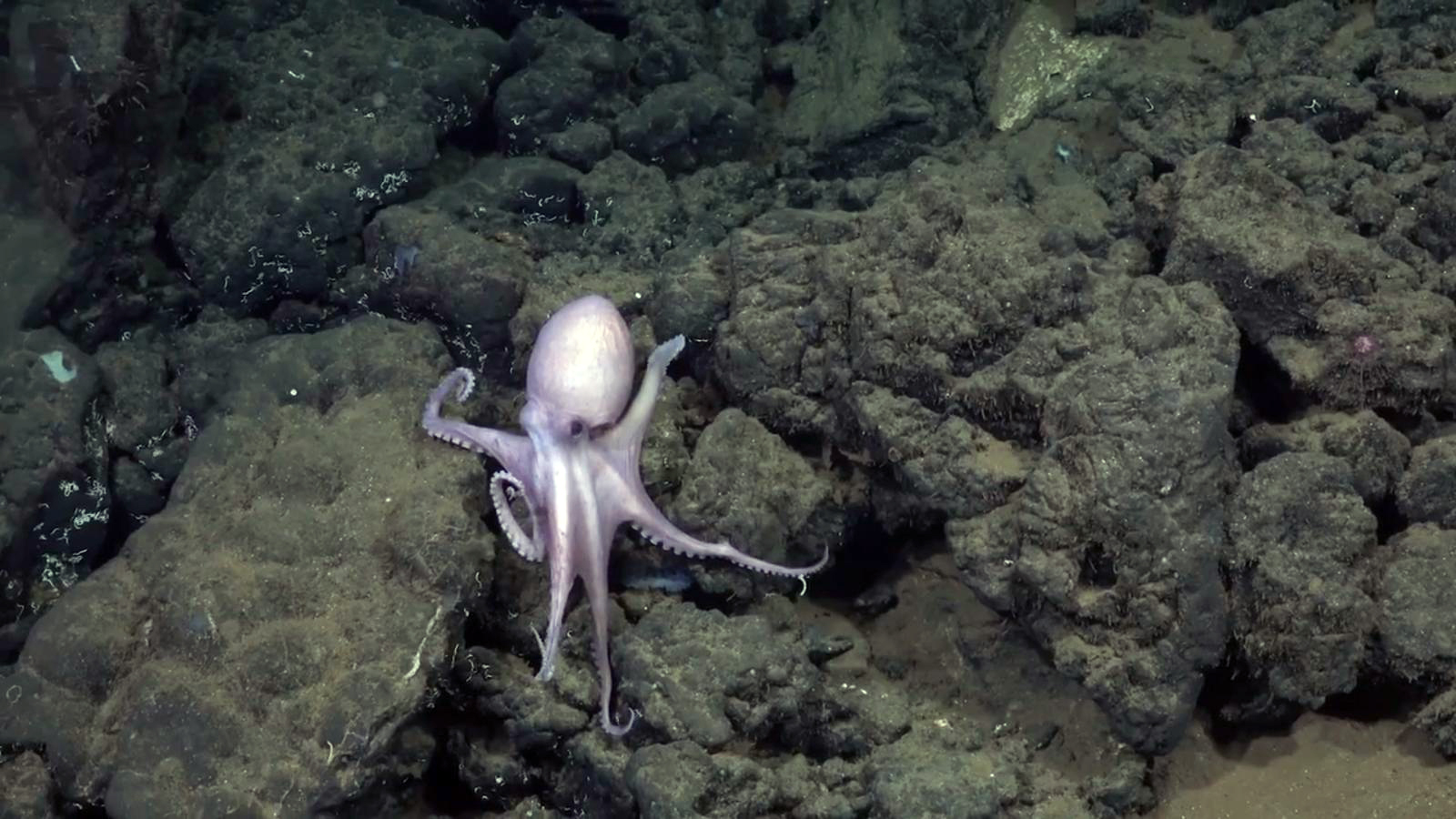Rare deep-sea octopus nursery discovered off Costa Rica
A deep-sea octopus nursery, just the third known to exist, has been discovered off the coast of Costa Rica, according to the Schmidt Ocean Institute.
Scientists were able to see an active octopus nursery and witness babies hatching while exploring deep-sea seamounts -- underwater mountains that facilitate biodiversity in the deep sea, the scientists said.
The team of 18 international scientists found the nursery at a low-temperature hydrothermal vent about 9,000 feet below the surface of the ocean. They believe the octopus is potentially a new species of Muusoctopus, a group of small- to medium-sized deep-sea octopus without an ink sac, the Schmidt Ocean Institute said in a statement.

Scientists used an underwater robot, ROV SuBastian, to observe the seamounts and baby octopuses.
"The discovery of a new active octopus nursery over 2,800 meters beneath the sea surface in Costa Rican waters proves there is still so much to learn about our Ocean," said Schmidt Ocean Institute Executive Director Jyotika Virmani.


The scientists made the discovery while on a 19-day expedition studying the biodiversity of unprotected seamounts off the coast of Costa Rica, according to the Schmidt Ocean Institute.
Witnessing the species hatch disproved the idea that the area is inhospitable for developing octopuses, according to the Schmidt Ocean Institute.

The site where scientists witnessed the hatching was discovered in 2013, and was the first time scientists witnessed female octopus gathered together to brood their eggs. But at the time, scientists did not see developing embryos leading them to believe the Dorado Outcrop might not support octopus growth, according to the Schmidt Ocean Institute.
"The deep-sea off Costa Rica rides the edge of human imagination, with spectacular footage collected by ROV SuBastian of tripod fish, octopus hatchlings, and coral gardens. We look forward to continuing to help the world witness and study the wonders of our incredible Ocean," Virmani said.



